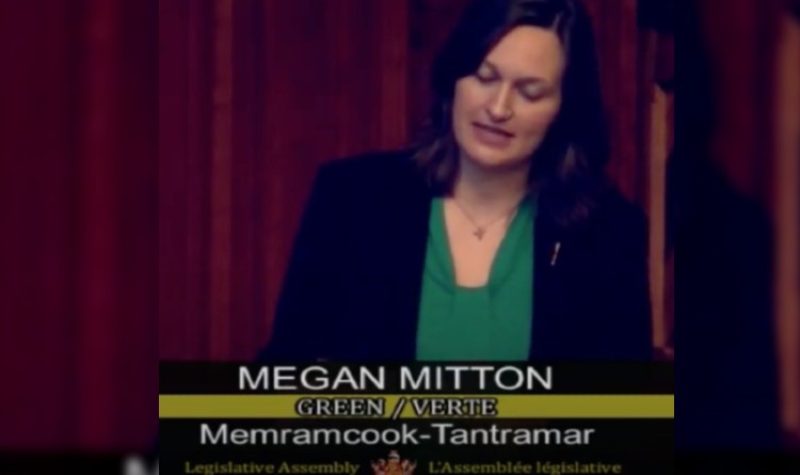This article was updated at 4:25 p.m. on Wednesday, April 19, 2023 to include information from the Department of Education and Early Childhood Development. It was updated again at about 4:40 p.m. to include information from the federal government.
The provincial and federal governments have said that they want to make sure kids are getting the nutrition they need during the school day.
But progress is happening too slowly, according to Megan Mitton, the MLA representing Memramcook-Tantramar.
“This is a constant issue that I’ve seen whenever I’ve visited or spoken to teachers,” the Green Party MLA said in an interview on Tuesday.
“It’s frustrating for things to move so slowly, because what we’re talking about here is about making sure children have eaten.”
The question of school food programs came up Tuesday during a legislative committee meeting in Fredericton, at a time when inflation has put additional pressure on household food budgets.
During a testy exchange with Mitton, Minister of Education and Early Childhood Development Bill Hogan said the government’s goal is to have a food program in every school.
“We know children that are hungry cannot learn,” Hogan said.
He indicated that approximately 245 of New Brunswick’s schools have some kind of food program, but that another 50 do not.
There are breakfast programs at “pretty well” all of those 245 schools, with lunch or take-home food at some, depending on what kinds of community partnerships those schools have developed.
He said the provincial government is currently working with the other 50 schools to “make sure that they have a food program.”
When Mitton pressed the Minister for details – such as whether the programs would be free of charge, or whether they would offer lunch or breakfast – Hogan said that information wasn’t available, but that the programs may vary based on need.
The Department of Education committed $2 million in the 2023-24 budget towards "to improve access to healthy foods for all New Brunswick students," according to Morgan Bell, a department spokesperson.
In his remarks on Tuesday, the Minister also noted that the province hoped for some additional investments from the federal government.
In 2021, Prime Minister Justin Trudeau made an election pledge to work with “provincial, territorial, municipal, Indigenous partners, and stakeholders” on the development of a national food program.
The Liberal Party platform (PDF) stated that the goal was “to develop a National School Food Policy and work towards a national school nutritious meal program with a $1-billion dollar investment over five years.”
Canada is the only G7 country without a national school food program.
"Work is well underway" to change that, according to Philippe-Alexandre Langlois, press secretary for the Office of the Minister of Families, Children, and Social Development.
He noted efforts such as consultation sessions with "over 130 organizations across Canada." Langlois also pointed to various poverty-reduction initiatives, including a grocery rebate in the 2023 budget.
Stephanie Patterson, a spokesperson for the Anglophone East School District, said in an email that all 39 schools in the district have breakfast programs, “funded through grants, various donations and partnerships.”
The district also has a partnership with Food Depot Alimentaire, the food bank, which provides food to schools in the district, including in Sackville.
“Food insecurity is definitely an ongoing concern in our schools and we are actively working on developing more robust school food programs to include lunch programs where we can through donations and funding,” Patterson said.
She added that some AESD schools have partnered with a charity called Isthmus, formerly known as Blessings in a Backpack, which provides food for students to take home from school.
When the COVID-19 pandemic caused schools to shut their doors, the school district worked with community groups, teachers and volunteers to make and distribute lunches for children who would normally rely on school food programs, she added.
More than 40,000 lunches were distributed between March 16th and the end of June 2020, according to Patterson.
Listen to the report from CHMA:


